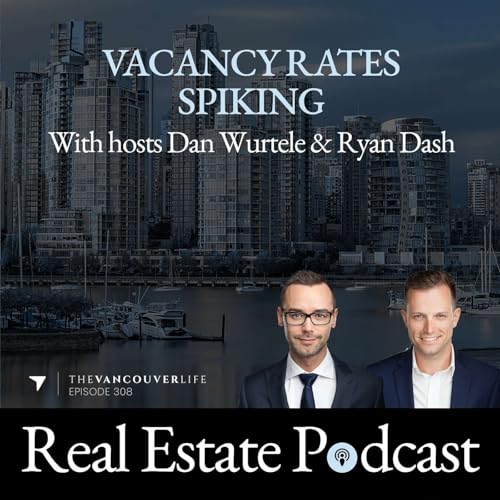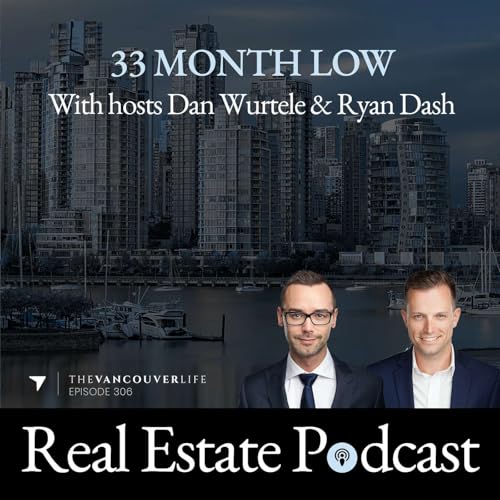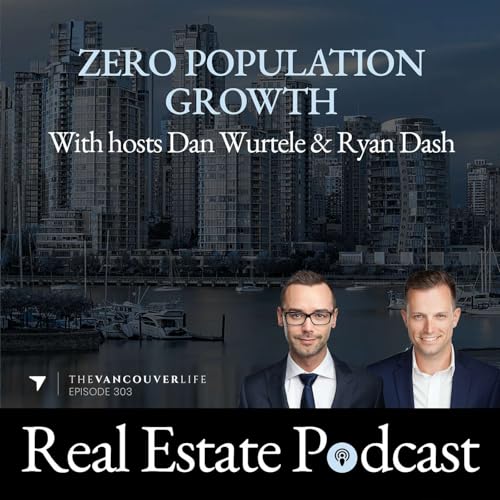Canada’s housing market is being pulled in more directions than ever. Court cases, collapsing construction, political battles, and rising costs are all converging at once — and the result is a level of uncertainty we haven’t seen in years. This week, we’re breaking down what’s making headlines, what’s just noise, and what could materially reshape housing across B.C.
We start in Port Coquitlam, where a decade-long Kwikwetlem land claim has resurfaced, putting major institutional sites from the Riverview lands to Gates Park, back into the legal spotlight. The case is currently paused while provincial negotiations take place, but after the recent Richmond ruling and new cases in Kamloops and Sun Peaks, municipalities are bracing for more challenges. With 95% of B.C. land unceded, these decisions could set the tone for years of litigation.
Cross-border tensions are rising too. Several Alaska tribal nations have now petitioned the B.C. Supreme Court, arguing they should have a legal voice in Canadian resource projects including the Red Chris Mine, a federally fast-tracked, nation-building development. Their claim builds on the 2021 Desautel ruling, which recognized U.S.-based tribes as Aboriginal peoples of Canada. If the courts agree again, the implications for Canadian sovereignty, consultation rights, and investor confidence could be enormous.
Meanwhile, housing supply is weakening. Starts are falling across B.C., with multi-family projects in larger centres down sharply. Calgary is considering reversing its citywide rezoning, Burnaby has scaled back Bill 44, and pre-sale markets continue to collapse — all of which point to even lower starts ahead. But there is one major outlier: the Heather Lands proposal has returned with towers as tall as 46 storeys, driven by a massive attainable-housing initiative involving the Province and the MST Partnership. If approved, 85% of the 4,200 homes on site would be below-market — a scale almost unprecedented in Vancouver.
Demographics are shifting too. The median homebuyer age is rising rapidly, especially in the U.S., where it has surged to 59. Wealthier, older buyers are dominating the market, while first-time buyers shrink to record lows. Canada hasn’t seen the same extreme jump yet, but affordability constraints suggest we’re heading in that direction.
On the financial side, the fallout from “Condo Day” continues as the Belvedere project in Surrey enters creditor protection, revealing just how fragile pre-sale economics have become.
Nationally, CREA reports modest price increases and slightly higher sales, but Ontario’s downturn continues to drag the national average lower.
And finally, inflation cooled to 2.2%, but not for the reasons that matter most to homebuyers. Gas prices did the heavy lifting, while shelter costs — rent, insurance, and mortgage interest — continue pushing inflation higher. Core measures remain sticky, meaning cheaper mortgages aren’t coming anytime soon.
Policies, courts, construction, demographics, and financing are all colliding at once. Understanding which forces are temporary and which are structural has never been more important.
This week, we break it all down — and what it means for your next move in B.C.’s housing market.
_________________________________
Contact Us To Book Your Private Consultation:
📆 https://calendly.com/thevancouverlife
Dan Wurtele, PREC, REIA
604.809.0834
dan@thevancouverlife.com
Ryan Dash PREC
778.898.0089
ryan@thevancouverlife.com
www.thevancouverlife.com
 23 分
23 分 31 分
31 分 26 分
26 分 27 分
27 分 30 分
30 分 29 分
29 分 13 分
13 分 2025/11/0837 分
2025/11/0837 分
